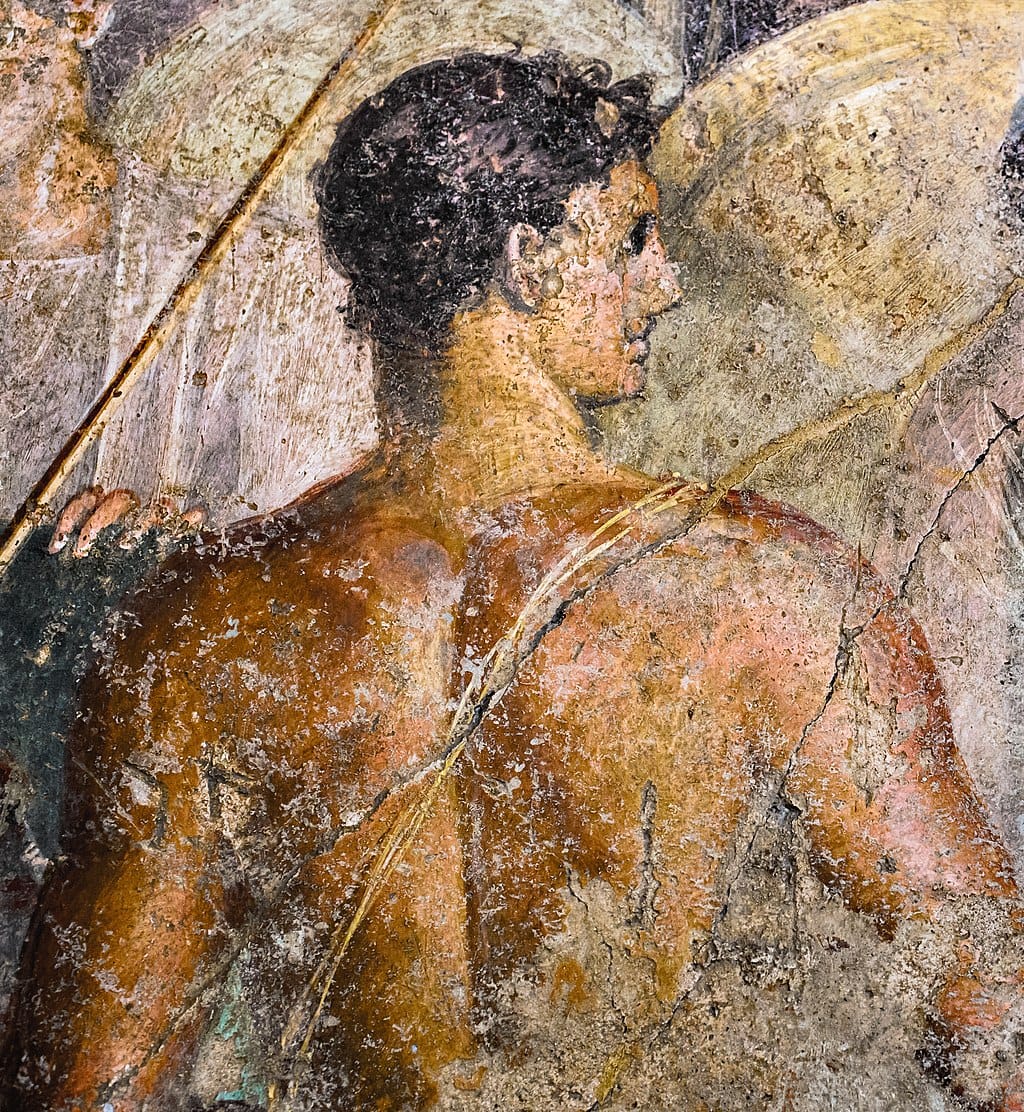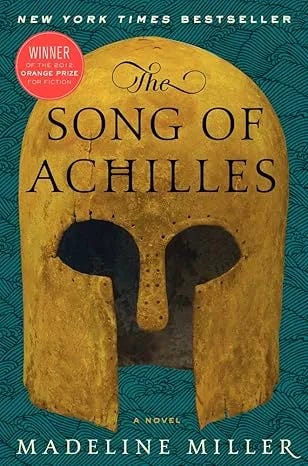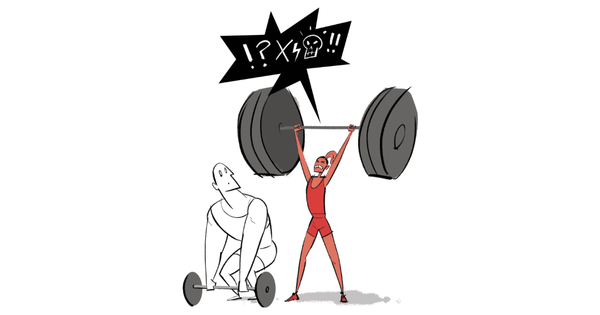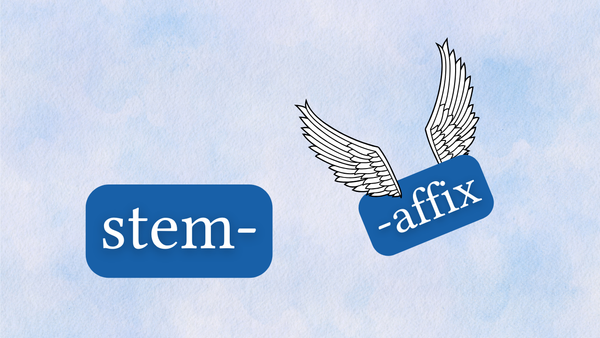You probably missed this in Song of Achilles
Also, here’s what Patroclus and Cleopatra have in common

In today’s newsletter we’ll take a brief detour from linguistics into classical literature. So if you’re a classics major or have an interest in Ancient Greek literature, you might enjoy this one! (I might have thrown in a small bit of linguistics trivia at the end too…)
Prefer a video version of this post? Watch here:
Here’s something you probably missed about Song of Achilles:
For context, Song of Achilles is a retelling of the story of Achilles and Patroclus from the Iliad, recasting the two mythical heroes as lovers. It’s a beautiful, tragic story and well worth the read for the plot, characterization, and writing style alone. But one of the things I love most about the book is the richness that the author, Madeline Miller, gives the story thanks to her scholarly background in classical studies (BA and MA in Classics at Brown University). Today’s post explains my favorite example of this from the book.

Begin it when the first two men contending broke with one another…
I’ll set the scene: The leader of the Greek army, Agamemnon, has just made the asinine decision to steal Achilles’ slave girl Briseis. Since Achilles had claimed Briseis as a war prize for his feats in battle, he’s incensed. Achilles confronts Agamemnon in a murderous rage. Here’s how this plays out in the original Iliad (Robert Fitzgerald’s translation):
A pain like grief weighed on the son of Peleus [Achilles],
and in his shaggy chest this way and that
the passion of his heart ran: should he draw
longsword from hip, stand off the rest, and kill
in single combat the great son of Atreus [Agamemnon],
or hold his rage in check and give it time?
And as this tumult swayed him, as he slid
the big blade slowly from the sheath, Athena
came to him from the sky. […] And Athena, stepping
up behind him, visible to no one except Achilles, gripped his red-gold hair.
[Achilles is surprised, and asks why Athena is there.]
The grey-eyed goddess Athena said to him:
“It was to check this killing rage I came
from heaven, if you will listen. […]
Enough: break off this combat, stay your hand
upon the sword hilt. Let him have a lashing
with words, instead: tell him how things will be.
Here is my promise, and it will be kept:
winnings three times as rich, in due season,
you shall have in requital for his arrogance.
But hold your hand. Obey.”
To summarize: Achilles is conflicted about killing Agamemnon, but just as he’s about to send Agamemnon to the underworld, Athena shows up and convinces him to stay his hand with promises of future riches. Importantly, no one else sees Athena but Achilles.
Achilles then acquiesces to Athena’s demand and gives Agamemnon a thorough tongue lashing instead of killing him.
Now here’s that same scene in Song of Achilles. This scene (and indeed the entire book) is told from the perspective of Patroclus, Achilles’ lover, who is standing to the side watching Achilles confront Agamemnon:
Because he was turned, Agamemnon did not see Achilles’ hand go to his sword. My breath caught. I knew that he was capable of this, a single thrust through Agamemnon’s cowardly heart. I saw the struggle on his face. I still do not know why he stopped himself; perhaps he wanted greater punishment for the king than death.
So here’s Patroclus, who knows Achilles better than anybody, thinking to himself that Achilles’ restraint seems out of character, yet unable to figure out why. But anybody familiar with the original version of this scene in the Iliad knows exactly why: because Athena, unseen to everyone else, had just convinced Achilles to stay his hand.
That single little clause, “I still do not know why he stopped himself,” is a subtle allusion to Athena’s visit in the original Iliad. It’s such a fantastic example of both Miller’s skill as a writer and her thoroughness as a scholar-cum-novelist. The way she carefully constructs this imperceptible lacuna around Athena almost feels like creating the narrative equivalent of an optical blind spot. And Song of Achilles is brimming with these rich and subtle details. It’s a joy for anyone with an appreciation of Classical Greek literature or mythology to read.
So I hope that was a fun piece of trivia that perhaps gives you an even greater appreciation for an already excellent book.
But since this is a newsletter about linguistics, I can’t resist ending with a quick bit of etymology:
The name Patroclus in Ancient Greek was Πᾰ́τροκλος Pắtroklos, composed of πᾰτήρ pătḗr ‘father’ + -κλῆς -klês ‘fame’, meaning ‘glory of his father’. Wanna guess what name you get when you put those two elements in the opposite order? That’s right, Κλεόπατρος Kleópatros—or as she’s known in English, Cleopatra!
Thanks for indulging in some non-linguistics today! We’ll resume our regularly scheduled linguistics programming in the next issue!
If you'd like to support Linguistic Discovery, purchasing through these links is a great way to do so! I greatly appreciate your support!
Check out my entire Amazon storefront here.




